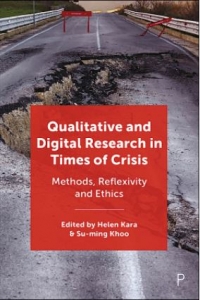International Women’s Day has a longer history than many people realise, dating back well over 100 years. As a proud lifelong feminist, I have celebrated IWD on many occasions. But in recent years I have begun to feel a nagging unease.
As well as IWD on 8 March, there is also International Men’s Day (IMD) on 19 November (as Richard Herring so kindly and amusingly pointed out, over and over again, for many years on Twitter up to 2020, raising hundreds of thousands of pounds for women’s charities in the process). But this reinforces the outdated idea that gender is binary. Of course there is also International Transgender Day of Visibility (31 March), International Non-Binary People’s Day on 14 July (intentionally halfway between IWD and IMD), and a whole range of other international days celebrating different kinds of gender and sexual orientation. And it doesn’t stop there. We have the International Day for the Elimination of Racial Discrimination (21 March), the International Day of Persons with Disabilities (3 Dec), and many, many more international days of various things. So many, in fact, that some are quite absurd – there is even, and I am not making this up, an International Pillow Fight Day.
Among this plethora of international days of this and that, I wonder whether we are missing a couple of important points. First, the fact that every day is either an international day of something, or part of an international week or month of something else, or both, surely causes some detrimental international day fatigue. Second, having a designated day for promoting the rights of one group of people in society rather suggests that, if we do our bit on the designated day, we can forget about that group for the next 364 days. (It’s a bit like the way a research ethics committee conferring approval on a research project can lead researchers to think they have ‘done ethics’ and don’t need to think about ethics anymore.) This kind of compartmentalisation is a very Euro-Western approach to life: break it down into components and then deal with one component, or one set of components, at a time. Which works fine if you’re trying to fix a car or build some flat-pack furniture, but much less well if you’re trying to deal with people or society or the environment in all their spectacular complexity.
Attributes such as ‘woman’, ‘Black’, ‘disabled’ and so on do not exist in isolation. Nobody is only non-binary or nothing but Chinese. Gender and race, class and disability, religion/belief and sexual orientation all intersect in all of us – together with a bunch of other attributes – in hugely varying ways. This is known as ‘intersectionality’, a term coined by the Black American law professor Kimberlé Crenshaw in the early 1990s.
Crenshaw recognised that separating out components of society can serve to conceal power relations within that society. Inspirational women have been teaching us that ‘feminism’ actually means ‘White middle-class feminism’ and generally excludes or ignores the voices of Black, Indigenous, working-class and other marginalised feminists. ‘Racial discrimination’ is generally held to mean discrimination by White people at the expense of Brown or Black people, which conceals other forms of racial discrimination such as the discrimination against Somali people in Kenya and other African countries. And there are many other such examples.
When we start to think intersectionally, power relations come to the foreground. That can be uncomfortable which may explain why many people prefer to stick with compartmentalisation. However, if we are going to achieve real and lasting social change, we need to work through the discomfort. Also, as a species, we are notoriously bad at learning from history, but if we could just learn one lesson, I would vote for it being ‘we are stronger together’. History has shown us, many times, that collective action creates change far more effectively than individual or separatist action.
I’m not necessarily arguing for the complete abolition of international action days. And I’m certainly not arguing that we no longer need to fight for women’s rights, an end to racial discrimination and so on. Although the world has made significant social progress in recent decades, there is still a very great deal to do. But I am arguing for some consolidation of these days. Perhaps IWD, IMD and International Non-Binary Day could be combined into International Gender Rights Day? And I am absolutely arguing for every single day to be International Intersectionality Day, because ultimately I think that is the direction we need to take.
Helen Kara is a leading independent researcher, author, teacher and speaker specialising in research methods, particularly creative methods, and research ethics. Helen has written multiple books published by Policy Press.
 Helen’s most recent Policy Press book, Qualitative and Digital Research in Times of Crisis, co-edited with Su-ming Khoo is available to order on the Policy Press website here. Browse all of Helen’s books here.
Helen’s most recent Policy Press book, Qualitative and Digital Research in Times of Crisis, co-edited with Su-ming Khoo is available to order on the Policy Press website here. Browse all of Helen’s books here.
Bristol University Press newsletter subscribers receive a 25% discount – sign up here.
Follow Transforming Society so we can let you know when new articles publish.
The views and opinions expressed on this blog site are solely those of the original blog post authors and other contributors. These views and opinions do not necessarily represent those of the Policy Press and/or any/all contributors to this site.
Image credit: Joe Flood via Flickr (CC BY-NC-ND 2.0)


